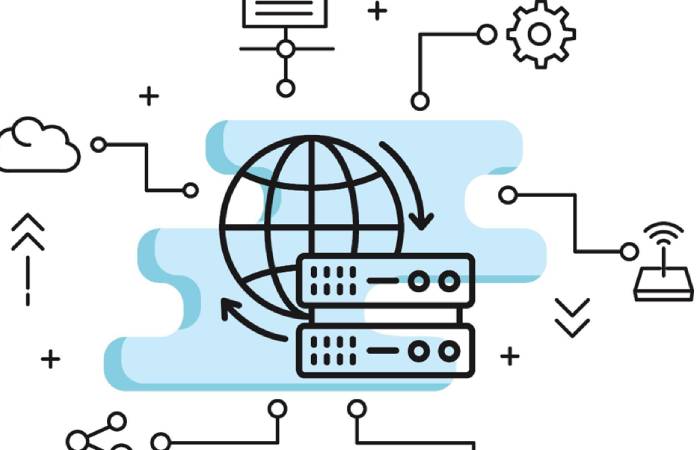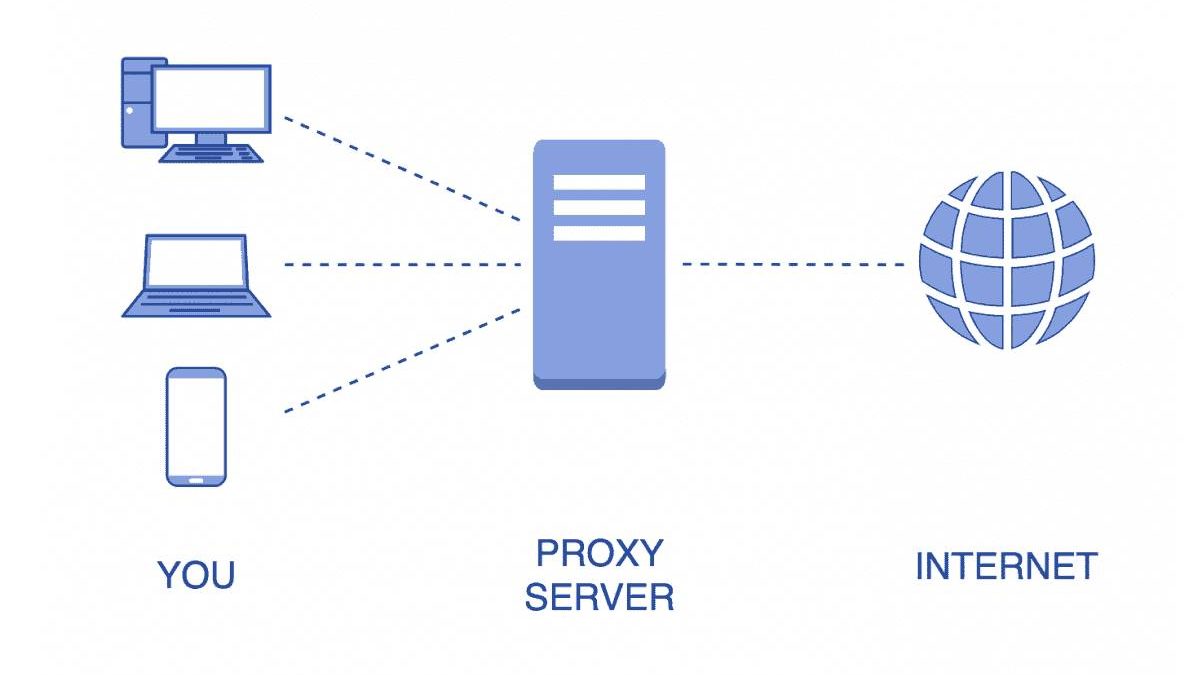
As with companies in all other sectors, not all proxy service providers are reliable or live up to their promises. So, it is important to thoroughly consider a few aspects of their operations, especially if you have not used the provider’s proxies before. This article details the considerations you should make when selecting a proxy service provider. But first, let’s understand what a proxy is.
Table of Contents
Proxy Server
A proxy or proxy server is a hardware or software that routes internet traffic, namely HTTP/HTTPS requests as well as incoming responses from a webserver, through itself. This way, the client-side proxy (known as a forward proxy) masks the real IP address and assigns a new IP address in a process that anonymizes your browsing experience. The online anonymity provided by the forward proxies allows you to undertake web scraping, ad verification, bypass geo-restrictions, and more. Examples of forward proxies include:
- Residential proxies
- Datacenter proxies
- Client-side HTTP/HTTPS proxies
- SOCKS proxies
- Transparent proxies
- Dedicated proxies
- Shared proxies
- Rotating proxies
- Static proxies
On the other hand, reverse proxies, which are found on the server’s side of an internet connection. This proxy type is used for load balancing, caching files to improve the website’s loading speed, and filtering the requests to prevent cyberattacks such as distributed denial of service (DDoS) attacks.
Considerations when Choosing a Proxy Service Provider
As a beginner, it is important to consider the following primary factors:
- Documentation
- 24/7 technical support
- Tutorials
- Additional web scraping services
- Ethics
- Cost
- IP network pool
Documentation
Documentation is commonplace in software development. Embedded in the source code or accompanying the software release, the documentation contains written text and illustrations that explain how the program works and how its users can use it. Besides guiding the users, documentation is also used by the developers to onboard new team members.
Given how technical some proxies can be, especially in instances where they are integrated into web scraping solutions, how to operate them may not be clear from the onset. And this is where documentation comes in; it provides all the information that should guide your usage. For instance, it details how to configure the proxy and choose a country whose IP address the proxy will assign your connection. The text and illustrations can also help you troubleshoot some problems. But in the event you cannot deal with the issues, the provider’s support team should be your next recourse.
Technical Support
A reliable proxy service provider has a team on standby to offer 24/7 technical support. Such a provider understands that proxies can be technical and that not every user has a technical background that can enable them to troubleshoot problems.
The assurance that you will always reach a support agent to resolve any issue improves your customer experience and confidence in the product. This is because it heavily influences the reliability of a proxy server.
Tutorials
Documentation may be too technical for some users. In that regard, good proxy service providers usually prepare visual tutorials to accommodate customers who may not have a technical background. These tutorials can take the form of written articles, complete with images, or videos, which are more relatable and easier to follow than blog articles.
Tutorials enable you to better understand how the proxy works as well as the proxy service provider’s dashboard or proxy management tools.
Additional Web Scraping Services
Some proxy service providers also offer web scraping tools. Combined, the proxies and web scrapers promote success by preventing IP blocking as well as bypassing geo-restrictions. Residential and datacenter proxies are preferred for web scraping, with the former being better suited for large-scale web scraping. Residential proxies are not easily blocked as they are associated with real users. On the other hand, datacenter proxies are used in small-scale web scraping exercises.
Ethics
Residential proxies assign residential IP addresses, which should be acquired from consenting users via bandwidth leasing agreements. The users must then install software that converts their devices into residential proxies. Ethical proxy service providers follow the right procedure to rent the bandwidth. They also pay the advertised fee per gigabyte (GB) or megabyte (MB).
However, unethical providers do not seek the consent of the users and instead deploy malware that then converts the users’ devices into residential proxies. Therefore, it is important to establish whether your provider follows ethical procedures by seeking the consent of the users.
Cost
Residential proxies are more expensive than datacenter proxies. This is because residential IP addresses are rare, as not every user is willing to rent out their bandwidth. On the other hand, datacenter IP addresses, which are generated by datacenter servers (meaning that datacenter proxies are virtual), are abundant. Similarly, dedicated proxies are more expensive than shared proxies.
IP Network Pool
A good service provider should have a vast IP address network that includes IPs from different countries.
Conclusion
As a beginner, it is important to set expectations for a proxy service provider that will guide your relationship moving forward. Some considerations you should have include documentation, additional web scraping services, tutorials, technical support, and more.
If you’re looking for an advanced, reputable proxy service, Oxylabs is a great provider – you can get a free trial to try them out!


